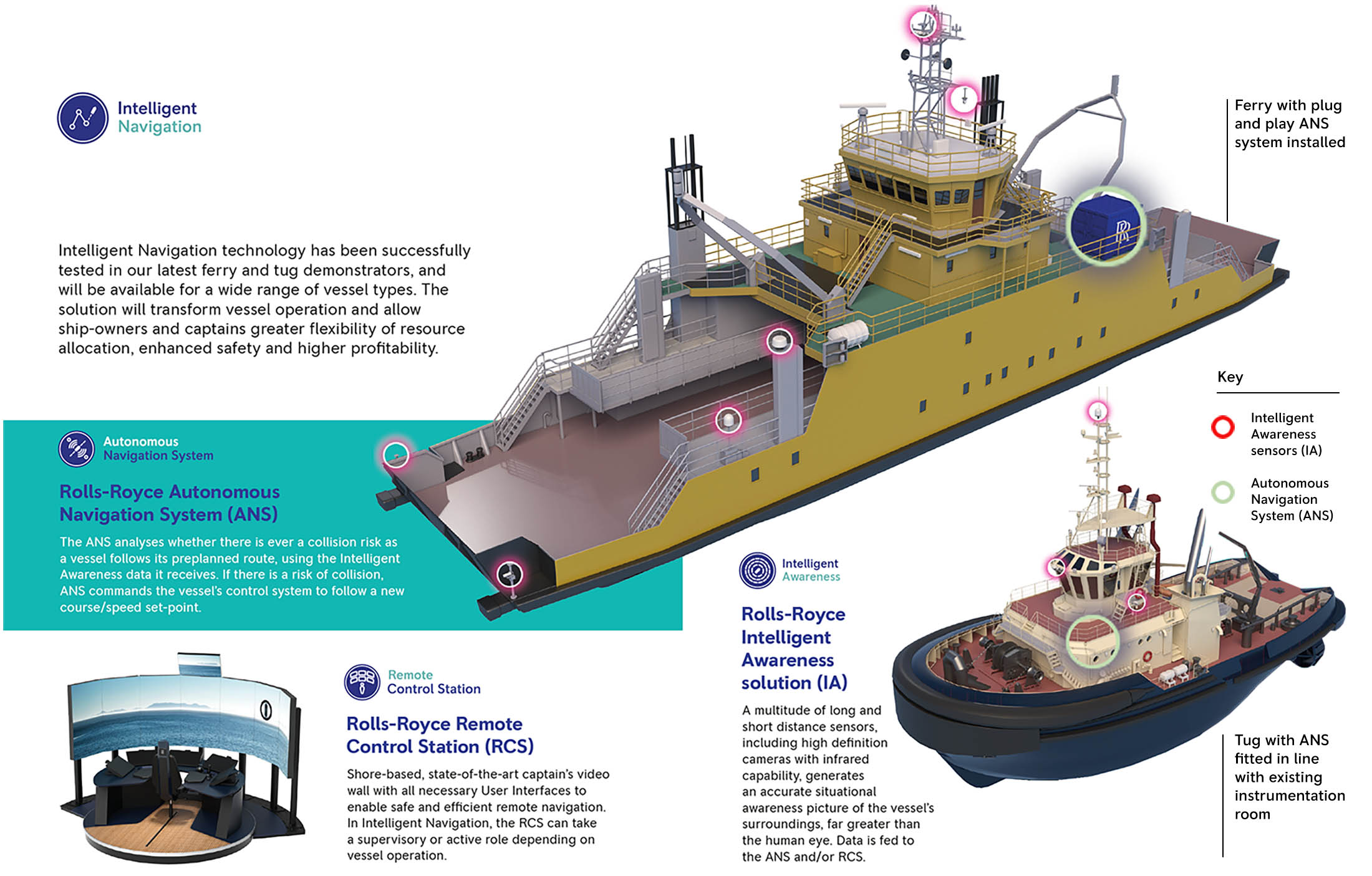Project SVAN (Safer Vessel with Autonomous Navigation) isn’t just a historic partnership between Rolls-Royce and Finferries – it marks a major milestone for the marine industry.
This exciting collaboration tests the findings from the Advanced Autonomous Waterborne Applications (AAWA) research project, funded by Business Finland, which started back in 2015. It brings together two companies who have identified the potentially disruptive impact of autonomous technology. And those same companies are united in their desire to push boundaries and bring today’s vessel operations into the Ship Intelligence era of tomorrow.
Our demonstration of the world’s first remote and autonomous ferry isn’t just a groundbreaking achievement. It’s also an insight into the possibilities that await other ship owners around the world.
Mikael Mäkinen, President – Marine, Rolls-Royce said “Today marks a huge step forward in the journey towards autonomous shipping. It’s five years since we began the discussion about autonomous ships. At the time, reactions ranged from curiosity to dismissing it as a crazy idea. Today, we have demonstrated what’s possible.”
“The SVAN project has been a successful collaboration between Rolls-Royce and Finferries and an ideal opportunity to show the world how Ship Intelligence technology can bring great benefits in the safe and efficient operation of ships.”
Mats Rosin, CEO – Finferries – “Working together with Rolls-Royce has been exciting and inspirational. Finferries brought to the project the knowledge of 24/7 operations in challenging Nordic archipelago conditions”.
“The maritime industry needs more of this kind of successful collaborations in order to take safer and cleaner shipping to the next level. I wish you all a memorable and safe trip on the world’s first autonomous ferry. Together we will today make maritime history. Time will tell in what way the results of today will be utilized on the ferries of tomorrow”.
We have made significant progress over the years in driving remote and autonomous vessel technology forward.
To do this, we’ve taken a collaborative approach by establishing new partnerships, working with our customers and regulatory authorities to help inform them in the development of future regulations.
We strongly believe that the future of the industry is remote and autonomous and that all vessels will benefit in some form or another, depending on type and operations.
Our demonstrators have proven that Ship Intelligence technologies are here today, working both reliably and cost-effectively, and Intelligent Navigation is no longer a vision. The technology is here today.


